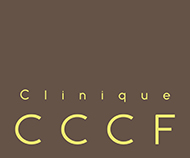A space for relevant questions
It is understandable to question what prompts you to consult, but also to wonder about the therapeutic process. These questions can help you make choices regarding the professional and the type of approach that will be appropriate for you. Here are some answers and an overview of the therapeutic process at Clinique CCCF.
Why consult a psychologist?
How does the psychotherapy process work?
First, in psychotherapy, psychologist and clients meet to discuss together. The psychotherapeutic process begins with two or three assessment sessions. This step is crucial and required by the Ordre des psychologues du Québec. This gives you the opportunity to familiarize yourself with the psychologist, ask questions, express your expectations and verbalize your concerns. For the psychologist, the assessment allows them to get to know you by exploring different areas of your current life (couple, family, professional, social), your experiences and your developmental history (childhood and adolescence). During the couple's process and sometimes during the individual process, the psychologist invites you to complete assessment questionnaires that can enrich their understanding. It is also through the assessment process that you express and define your needs and expectations to your psychologist. These sessions at the beginning of the process also aim at developing a bond of trust in the therapeutic relationship.
Thereafter, the psychologist offers you an assessment feedback session to review your assessment. During this session, the psychologist communicates their observations and clinical understanding. The psychologist will also tell you if they feel they are the right person to help you or if it is better to refer you to other resources. If the therapeutic process is continued, it is an opportunity to establish therapeutic objectives and direction together.
Finally, the intervention phase is the core of therapy. It is during this phase that therapeutic work is done to achieve the objectives set during the assessment feedback session. The means employed vary according to the psychologist's approach, but also according to the problem, needs and preferences of the person or couple. For example, for some, therapy will take the form of discussions and reflections in session, while for others, practical exercises to do at home will be used.
